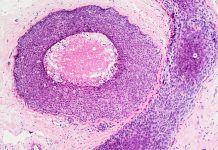AI model named Candycrunch has been designed to transform cancer detection through advanced sugar analysis
Researchers from the University of Gothenburg published this research in the journal Nature Methods, their study shows how Candycrunch outperforms traditional methods by swiftly and accurately identifying cancer-linked glycans from mass spectrometry data.
Decoding sugar structures
Glycans, intricate sugar structures within cells, are important in indicating various forms of cancer. However, decoding these structures manually has long been a tedious and time-consuming task, often taking experts hours to days per sample. This has restricted the pace of glycan analysis, restricting its widespread use in clinical and biological research.
Candycrunch, powered by artificial intelligence, aims to change this landscape dramatically. Trained on a wide database of over 500,000 examples of glycan fragmentations and structures, the AI model can determine the exact sugar structure in 90% of cases in mere seconds per test.
Daniel Bojar, Associate Senior Lecturer in Bioinformatics at the University of Gothenburg, underscores the transformative potential of Candycrunch. “The training has enabled Candycrunch to calculate the exact sugar structure in a sample in 90 per cent of cases” Bojar states. This acceleration not only expedites the identification of glycan-based biomarkers crucial for cancer diagnosis and prognosis but also enhances the discovery of previously elusive biomarkers due to their low concentrations.
Earlier cancer diagnoses
Candycrunch’s ability to detect these subtle structures opens doors to uncovering new biomarkers that traditional methods may overlook. This capability holds promise for advancing both biological and clinical research, potentially leading to earlier and more accurate cancer diagnoses.
“We believe that glycan analyses will become a bigger part of biological and clinical research now that we have automated the biggest bottleneck,” Bojar adds. The AI model’s speed and accuracy allow researchers to explore a wider range of samples efficiently, paving the way for new insights into cancer biology and personalised treatment strategies.
As AI continues to evolve, its role in deciphering complex biological data promises to redefine the future of medical diagnostics and therapeutic development.
With Candycrunch at the forefront of this paradigm shift, the University of Gothenburg’s AI-driven approach heralds a new era in cancer detection and biomarker discovery. As the global scientific community embraces this technological breakthrough, the potential for transformative impacts on healthcare outcomes becomes increasingly tangible.











